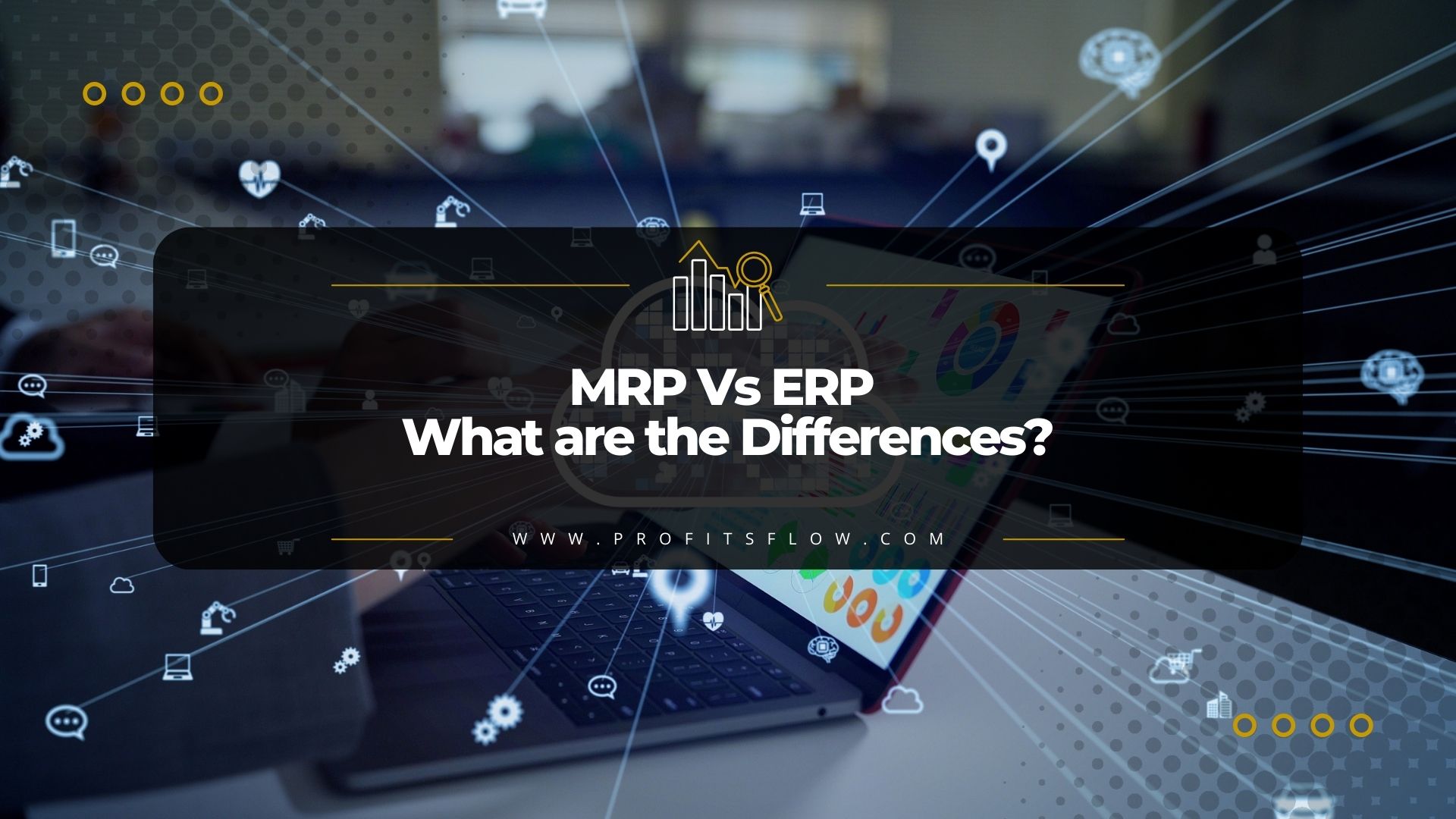MRP vs ERP: What is the best software solution for your business? While both systems share a similar name and are designed to improve efficiency and productivity, they serve different purposes and offer unique features. Understanding the differences between Material Requirements Planning (MRP) and Enterprise Resource Planning (ERP) is crucial for businesses looking to optimise their operations. This article explores the key distinctions between MRP and ERP systems.
Understanding MRP (Material Requirements Planning)
Material Requirements Planning (MRP) is a system focused primarily on manufacturing processes. It aims to ensure that materials are available for production, maintain the lowest possible material and product levels, and plan manufacturing activities, delivery schedules, and purchasing activities.
Key Features of MRP:
- Inventory Control: MRP helps manage inventory levels by ensuring that materials are available when needed, reducing excess stock and minimizing shortages.
- Production Planning: It assists in planning the production schedule based on demand forecasts, helping manufacturers produce the right number of products at the right time.
- Purchasing Management: MRP systems streamline the purchasing process by determining the quantities and timing of raw material orders.
- Bill of Materials (BOM): MRP uses BOM to determine the materials and components needed for production, ensuring that everything is available for the manufacturing process.
Understanding ERP (Enterprise Resource Planning)
Enterprise Resource Planning (ERP) is a comprehensive system designed to integrate and manage all core business processes. ERP systems encompass a wider range of functionalities beyond manufacturing, including finance, integration capabilities, sales, and customer relationship management.
Key Features of ERP:
- Integrated System: ERP provides a unified platform that integrates various business processes, ensuring seamless data flow across departments.
- Financial Management: It includes modules for managing financial operations such as accounting, budgeting, and financial reporting.
- Security and Compliance: Modern ERP systems should adhere to industry-standard security protocols and offer robust features such as data encryption, and audit trails to protect sensitive information and ensure regulatory compliance.
- Customer Relationship Management (CRM): ERP systems help manage customer interactions, sales processes, and marketing efforts.
- Supply Chain Management: It includes tools for managing the entire supply chain, from procurement to delivery, ensuring efficient operations.
Key Differences Between MRP and ERP
Scope of Functionality:
- MRP: Primarily focuses on manufacturing processes, including production planning, inventory control, and purchasing.
- ERP: Offers a broader scope, integrating various business functions such as finance, HR, sales, and supply chain management in addition to manufacturing.
Integration:
- MRP: Typically operates as a standalone system or as part of a larger manufacturing execution system (MES).
- ERP: Acts as an integrated system that connects all departments and business processes, providing a unified view of the organisation.
Data and Reporting:
- MRP: Provides detailed reports and data related to manufacturing and inventory, helping to optimise production processes.
- ERP: Offers comprehensive reporting and analytics across all business functions, enabling informed decision-making at every level of the organisation.
Cost:
- MRP: Generally, more cost-effective due to its limited scope and simpler implementation.
- ERP: Higher initial investment but offers long-term benefits by streamlining and optimizing all business processes.
Choosing the Right System for Your Business
The choice between MRP and ERP depends on the specific needs and goals of your business. If your primary focus is on optimising manufacturing processes and managing inventory, an MRP system may be sufficient. However, if you require a comprehensive solution that integrates all aspects of your business operations into one cohesive system, an ERP system may be the better choice.
Conclusion
Understanding MRP Vs ERP and their differences helps businesses make informed decisions about which system best suits their operational needs. While MRP focuses on the manufacturing aspect, ERP offers a holistic approach, integrating various business functions into one cohesive system. Evaluate your business requirements carefully to choose the solution that will drive your company’s success.
